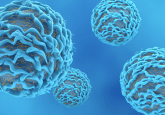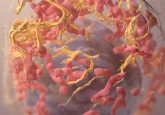Researchers develop activated T-cell therapy for advanced melanoma patients

Researchers from the University Hospitals Case Medical Center Seidman Cancer Center and Case Western Reserve University School of Medicine (OH, USA) have discovered that T cells taken from melanoma patients can induce an immune response against the disease in the same patient. The study signifies that T cells derived from lymph nodes of melanoma patients can be grown and activated in laboratories for intravenous treatment. The findings were published recently in the Journal of Immunotherapy.
Within the study, Julian Kim (University Hospitals Seidman Cancer Center) and his team developed a novel method to replicate and activate T cells isolated from lymph nodes to generate large numbers and then harvest them in a 2-week culture. The researchers surgically removed the lymph nodes to ensure that the activation and growth process of the T cells could be tightly controlled in the laboratory. The activated T cells could then be transferred back into the same patient to stimulate the immune system to attack the melanoma cells.
As a result of the promising findings, a Phase I human trial in advanced melanoma patients has begun at the center, funded by the National Institutes of Health (MA, USA) and the Case Comprehensive Cancer Center (OH, USA).
Kim commented: “The infusion of activated T cells has demonstrated promising results and is an area of great potential for the treatment of patients with cancer. We are really excited that our method of activating and expanding T cells is practical and may be ideal for widespread use. Our goal is to eventually combine these T cells with other immune therapies which will result in cures. These types of clinical trials place the UH Seidman Cancer Center at the forefront of immune therapy of cancer.”
The study is unique in that the source of T cells is derived from the lymph node of patients, producing encouraging results that the team hope will be replicated in the Phase I human clinical trial. In the meantime, the team have been exploring the possibility of creating a T-cell adoptive immunotherapy by utilizing lymph nodes from pancreatic cancer patients. Kim and his team have an ultimate goal to expand their work to eventually study several types of other cancer.
Sources: Zhang M, Graor H, Visioni A et al. T Cells derived from human melanoma draining lymph nodes mediate melanoma-specific antitumor responses In vitro and In vivo in human melanoma xenograft model. J. Immunother. DOI: 10.1097/CJI.0000000000000078 (2015); University Hospitals Case Medical Center press release



